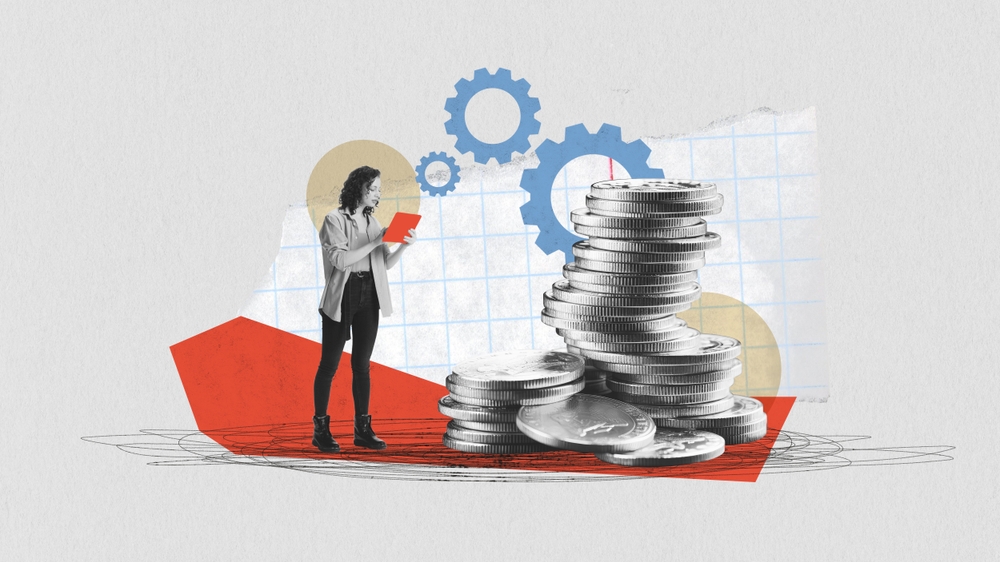Disposable income is a popular concept in the financial ecosystem. It refers to the amount of a family’s or individual’s income that remains after fixed expenses—such as taxes and rent—are paid. In simple terms, it is the money available for saving, investing, or discretionary spending.
For beginner financiers asking, “What is disposable income?”, the answer lies in understanding net income after essential expenses. This perspective allows individuals and families to approach financial planning in a more data-driven way.
By knowing their disposable income, people can evaluate how much they can save or invest without compromising their standard of living. In businesses, disposable income is defined as income excluding taxes, which is vital for meeting daily needs, funding investment projects, and optimizing savings strategies.
Families and individuals can also use their disposable income to explore savings accounts or investment opportunities. Typically, it is calculated by subtracting expenses such as taxes, rent, and social security contributions from total income.
On a broader scale, countries also have national disposable income values. Central banks monitor and manage these values through monetary policies, as they reflect a nation’s economic growth and stability.
For global investors, comparing disposable income across countries provides valuable insights into economic health and potential opportunities. Ultimately, disposable income is not just a technical financial term—it is a practical tool.
Whether applied at the level of individuals, families, businesses, or entire nations, it helps determine how much can be allocated to savings, investments, and long-term financial security.
In this blog, we will explore what disposable income is, why it matters, and how it’s calculated. You will also discover how disposable income impacts saving habits, investment opportunities, and long-term financial stability.
By the end, you will have a clear understanding of how to make smarter financial decisions and use this concept as a foundation for building your future. Let’s start!
What Is Personal Disposable Income?
If you are unfamiliar with this concept and are curious about “What is personal disposable income?”, the answer can be summarized as “the amount of income an individual has outside of their regular payments.”
The amount remaining after subtracting taxes, rent, and bills from your total monthly income represents your “personal disposable income.” It’s generally the amount excluding deductions like social security.
An individual can only initiate investment and savings projects with their disposable personal income. If this concept were to be expressed as an equation, the following “personal disposable income formula” would be correct:
- Personal disposable income: Total income – Essential expenses
The amount excluding essential expenses determines the playing field an individual can utilize in investment projects.
Initiating a savings or investment project without paying their regular and fixed payments, such as rent, bills, taxes, and social security contributions, will negatively impact financial stability and quality of life.
For optimal financial and budget management, it’s recommended that an individual subtract their fixed expenses and taxes from their total income to determine their “Personal Disposable Income.”
Based on this value, it is possible to determine more accurately the amount of investment that can be used in possible investment or savings projects.
What Is National Disposable Income?
If this concept is used in the context of a country’s macroeconomics, the question “What is national disposable income?” can be asked. The answer to this question can be given as “The total income calculated by subtracting the income of all individuals and companies in a country from the country’s mandatory expenses.”
If a country’s “national disposable income” value is high, it can be understood that the country is growing without debt. This value is generally high in democratic and developed countries with a high concentration of export companies and advanced technological infrastructure.
However, countries with a low value are gradually shrinking and increasing their debt. This scenario results in rising inflation and stagnating unemployment rates. Generally, countries’ financial authorities develop strategies or actions, such as resetting interest rates, to reshape their future perspectives based on this value.
Disposable Income Examples
In today’s markets, some examples of “disposable income” related to this concept, which allows an individual or family to determine the value of their income for a savings project, can be listed as follows:
- If an individual earns a salary of $10,000 and spends $4,000 on rent, taxes, and social security deductions, their disposable income can be calculated as $6,000.
- If they have an investment or savings plan, they should consider their income as $6,000, not $10,000.
- If a family’s total monthly income is $30,000 and there is a total tax of $10,000, we can know that the remaining $20,000 is their disposable income.
These examples provide a clearer answer to the question “How to calculate disposable income?” Disposable income examples can also be given on a broader scale. For example, if a country’s total annual income is $2 billion and $500 million remains constant, the difference here will determine the country’s disposable income value.
This represents its political and financial power within the current market conditions. With Jeton, you can easily use digital asset classes like fiat currencies and use them for both your business and personal goals within a transparent ecosystem.

Why Is Disposable Income Important?
There are many reasons why “disposable income meaning” is so important. The most effective of these are as follows:
- It enables the optimization of consumption expenditures.
- The savings rate is determined based on this value.
- It facilitates the analysis of investment and debt situations.
- It enables the creation of realistic savings plans.
- Global investment projects can be shaped by considering the average household disposable income value when comparing the financial health of countries.
- It facilitates the optimization of the family budget.
If you, as an individual, are wondering, “How much disposable income do I need?” you should be looking for ways to minimize your fixed and necessary expenses. If you can achieve this, it will be easier for you to experience these benefits.
Personal Income and Personal Disposable Income Differences
While personal income and personal disposable income may seem similar at first glance, they are financial terms with two different meanings.
Personal income represents a person’s total income earned periodically, while personal disposable income represents this total income minus mandatory payments.
Personal income is the total income you receive from different income streams, such as salary, interest, and rent. However, if we subtract taxes, rent, and social security contributions from this total, the difference between personal income and disposable income becomes clearer.
What Is the Difference Between Net Income and Disposable Income?
At first glance, disposable income can be confused with net income. However, net income and disposable income have different meanings. An individual’s net income represents the total income after all expenses are listed, while disposable personal income generally only deducts taxes.
However, net income also deducts insurance or debt payments from the total income. While these economic terms may seem to represent the same value at first glance, there are some differences in the calculation process.
The differences between net income and disposable income can be listed as follows:
-
Net income deducts not only taxes but also social security premiums.
-
Disposable income is generally calculated by deducting only mandatory taxes.
-
Net income represents salary after deductions.
-
Disposable income is used in economic analysis.
-
A family’s or a country’s saving power and rate of return can be determined using disposable income.
How to Calculate Disposable Income?
While it may sound like a complex financial formula, “How to calculate disposable income” is quite simple. Individuals from every income group can easily calculate their own disposable income using the following “disposable income formula”:
- Personal disposable income = Personal Total Income – Taxes
This equation allows a business or family to determine how much principal they have in their potential savings plan and optimize the process more realistically.
In addition to this mathematical formula, a country’s production projects, investment diversity, and import dependency rates can also provide information about disposable income.
You can calculate the maximum amount you can allocate to projects like savings or investments in your individual budget planning using this value.
Personal Disposable Income Formula
The disposable income formula can be summarized as follows:
- Personal disposable income = Total Personal Income – Taxes
National Disposable Income Formula
While calculating a country’s disposable income requires collecting more complex data sets than calculating individual disposable income, the following formula can provide a good idea for investors when calculating a rough national disposable income:
- National disposable income: National Income + Foreign Transfers – Taxes

How Does Disposable Income Affect the Economy?
It is possible to understand the relationship between a country’s economy and this value through examples of disposable income. A high national disposable income value generally signals a country experiencing increased consumption and economic growth.
A high national disposable income value doesn’t always mean high savings. A country’s ability to generate new resources for investment allows this value to be high.
However, a decline in income often results in spending restrictions and a deterioration in the country’s economy. Both individuals and businesses in a country directly affect the level of disposable income.
Disposable income should be perceived as a metric that provides insight into a country’s economy, rather than a factor directly affecting the economy. In other words, economic growth in a country drives this value to high levels. However, a high national disposable income value in a country does not directly affect economic growth.
Is Disposable Income Increasing?
The increase in disposable income in a country requires examining various factors. For example, the United States is experiencing an upward trend in disposable income.
This development can be observed through the following factors:
-
Rising wages
-
Decreasing taxes
-
Changes in the pace of economic growth
-
Macroeconomic data such as inflation
-
Changes in interest rates
By examining these factors, we can gain an idea of the increase in national disposable income in a country. Comparing disposable income values from different countries is considered a beneficial strategy, especially for individuals and businesses managing global investment projects.
Today, this value tends to increase in developing countries. However, developed countries do not experience volatility in this value and develop strategies to maintain their already high value.
How Much Disposable Income Do I Need?
The answer to the question “How much disposable income do I need?” can vary for each individual or business.
However, there is a generally accepted distribution in economics. According to this distribution, half of your income should be allocated to your basic needs. Allocating half of the remaining amount to personal expenses and the other half to savings or investment projects makes it easier to find the ideal balance.
Various factors, such as your income bracket, financial goals, and fixed expenses, make the ideal disposable income value vary for everyone.
However, if we ask this question from a country’s management perspective, the correct answer is that it should be at a level that reduces foreign debt and accelerates consumption. This is shaped by policies such as interest rates announced by central banks.
Wrapping Up
Managing money wisely starts with understanding how much of your income you can actually save, invest, or spend freely. That is where the concept of disposable income comes in.
Disposable income refers to the money left after covering essential expenses like taxes, rent, or social security contributions. But what does it really mean for individuals, families, or even countries?
Understanding your disposable income is the first step toward building stronger financial habits and securing your future. But knowledge alone is not enough—you also need the right tools to put your plans into action.
At Jeton, we make financial management simple, seamless, and secure. With the Jeton Wallet, you can track and control your spending while enjoying fast and safe global transfers.
The Jeton Card gives you the freedom to spend your disposable income worldwide—both online and offline—with ease. Whether you’re saving, spending, or sending money, Jeton brings everything together in one place.
Download the Jeton App today on the App Store or Google Play, open your account in minutes, and start managing your disposable income smarter with Jeton. For any further questions, do not forget to check out our FAQs. You can also connect our support team!



